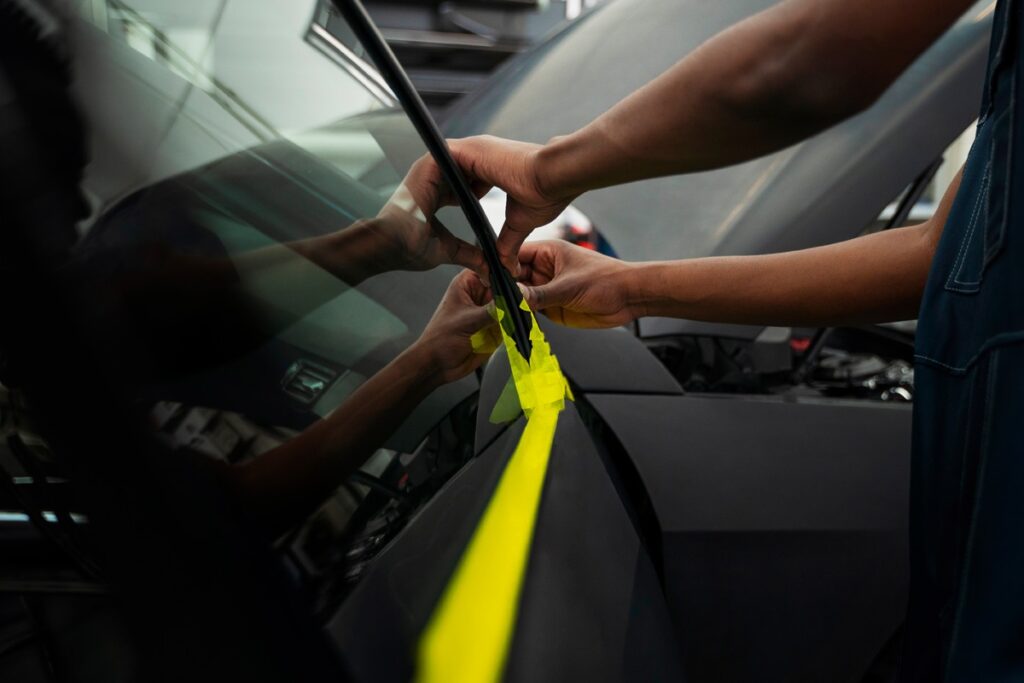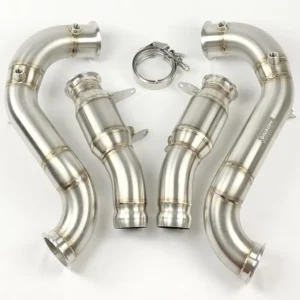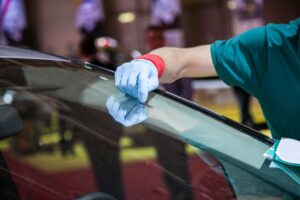Why Your Car Needs Solar Film A Cool Investment for Singapore Roads

In a country where the sun beats down with relentless enthusiasm, solar film for car windows is more than a luxury; it’s a necessity. Whether you’re cruising along the East Coast Parkway or stuck in a morning jam on the PIE, the right solar film transforms your driving experience by protecting you from heat, glare, and harmful UV rays.
What Is Solar Film, and Why Does It Matter?
Solar film is a thin, multi-layered material applied to your car windows, designed to reduce heat and block UV rays. Think of it as your car’s sunglasses, except it doesn’t just make things cooler—it also adds a layer of protection for you and your passengers.
Singapore’s tropical climate makes this upgrade almost essential. According to the Meteorological Service Singapore, the city sees an average daily temperature of 31°C. Combine that with high humidity, and your car can feel like a sauna on wheels without proper heat protection.
Key Benefits of Solar Film for Cars
Investing in solar film goes beyond comfort—it has multiple practical advantages:
- Heat Reduction: High-quality films can block up to 60% of the sun’s heat, keeping your car’s interior cool even during the midday blaze.
- UV Protection: Premium films block up to 99% of harmful UV rays, reducing your risk of skin damage and preventing your car upholstery from fading.
- Glare Reduction: Solar film cuts down on glare from sunlight and headlights, improving visibility and reducing eye strain while driving.
- Improved Fuel Efficiency: With a cooler interior, you’ll rely less on air conditioning, which can help save fuel—especially useful given the rising petrol prices in Singapore.
- Enhanced Privacy: Tinted solar film prevents prying eyes from peeking into your vehicle, giving you peace of mind when parked in public spaces.
What Makes Solar Film Essential for Singapore Drivers?
Driving in Singapore often means enduring long hours in traffic under the sun. Without proper protection, the heat can become unbearable. Here’s why solar film is a game-changer:
- Heatwaves Are Real: In recent years, Singapore’s maximum temperatures have reached 36°C, and the Urban Heat Island effect makes it worse for vehicles on the road.
- High UV Index: Singapore experiences a UV Index of 7 to 9 (high to very high) most of the year. Prolonged exposure without protection can lead to serious skin conditions.
- Traffic Congestion: Average drivers spend about 60 hours annually in traffic jams, according to a 2023 report by INRIX. Solar film ensures those hours are spent in relative comfort.
Types of Solar Film to Consider
Choosing the right solar film can be daunting, given the variety available. Here are some common types to guide your decision:
- Dyed Film: Affordable and good for reducing glare, but less effective in blocking heat.
- Metallic Film: Reflects heat well but can interfere with GPS and mobile signals.
- Ceramic Film: Offers excellent heat and UV protection without signal interference, making it a popular choice in Singapore.
- Carbon Film: Durable and effective in heat rejection, but slightly more expensive.
Understanding Legal Regulations in Singapore
Before applying solar film, it’s crucial to ensure compliance with Singapore’s Land Transport Authority (LTA) regulations:
- Visible Light Transmission (VLT): Front windscreen must have a VLT of at least 70%, while side and rear windows must allow at least 25% of light through.
- No Mirror Finishes: Reflective or mirrored films are prohibited, as they can cause glare for other road users.
Failing to meet these standards can result in fines or the need to remove the film entirely. Always choose a certified installer familiar with local laws.
How to Choose the Right Solar Film
To make an informed decision, consider these factors:
- Heat Rejection Rate: Look for films with a high Total Solar Energy Rejection (TSER) percentage, ideally above 50%.
- UV Blocking Capability: Ensure the film blocks at least 99% of UV rays.
- Warranty: Reputable brands often offer warranties ranging from 5 to 10 years, covering defects and performance issues.
- Budget: Prices vary widely, from $200 for basic films to $800 or more for premium ceramic options.
Additional Tips for Maintenance
To maximise the lifespan of your solar film, follow these simple care tips:
- Avoid Harsh Cleaning Agents: Use a soft cloth and mild detergent to clean your windows.
- Park in Shade When Possible: This reduces strain on the film and keeps your car cooler.
- Inspect Regularly: Check for peeling, bubbling, or fading, and address issues promptly with your installer.
Environmental Impact of Solar Film
Beyond personal comfort, solar film contributes to environmental sustainability:
- Reduced Carbon Footprint: By lowering your reliance on air conditioning, solar film indirectly reduces emissions.
- Durable Materials: High-quality films last years, minimising waste compared to cheaper options that require frequent replacement.
Final Thoughts: A Cool Investment for Every Driver
Solar film for car windows isn’t just a luxury—it’s an investment in comfort, safety, and sustainability. In Singapore’s relentless tropical heat, it offers much-needed relief and protection, making every journey more enjoyable.
Whether you’re upgrading to a ceramic film for maximum performance or sticking with a budget-friendly option, solar film is a smart choice for drivers. From reducing glare to improving fuel efficiency, the benefits are undeniable. The next time you hit the road, let solar film for car windows keep you cool, comfortable, and protected.









